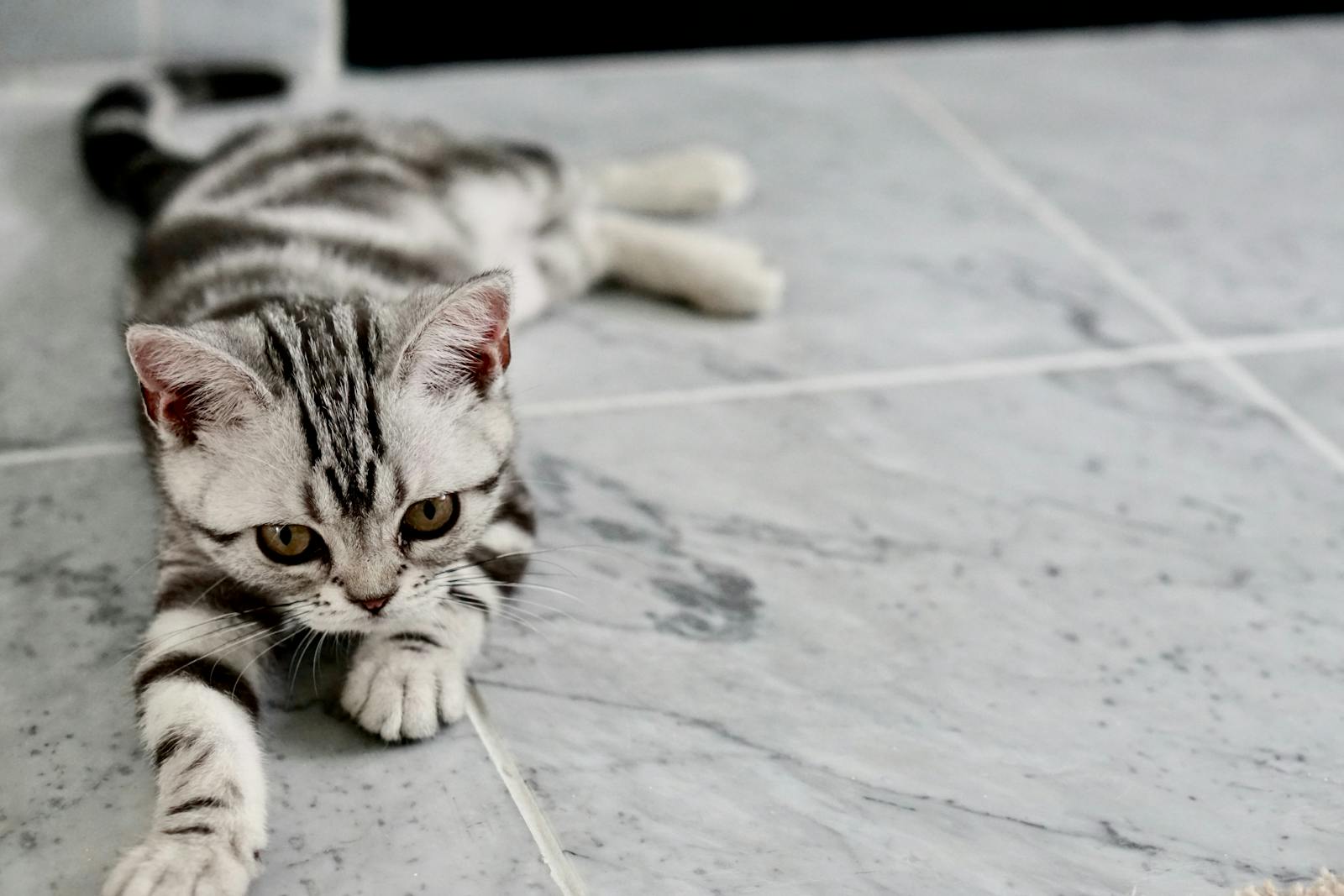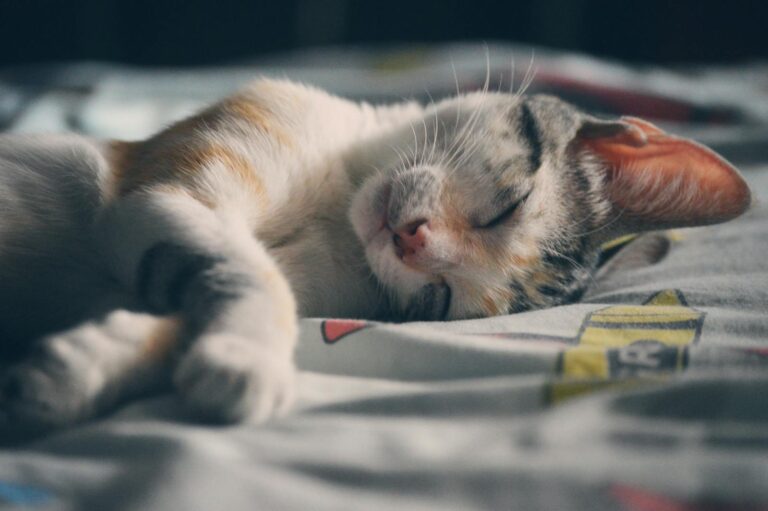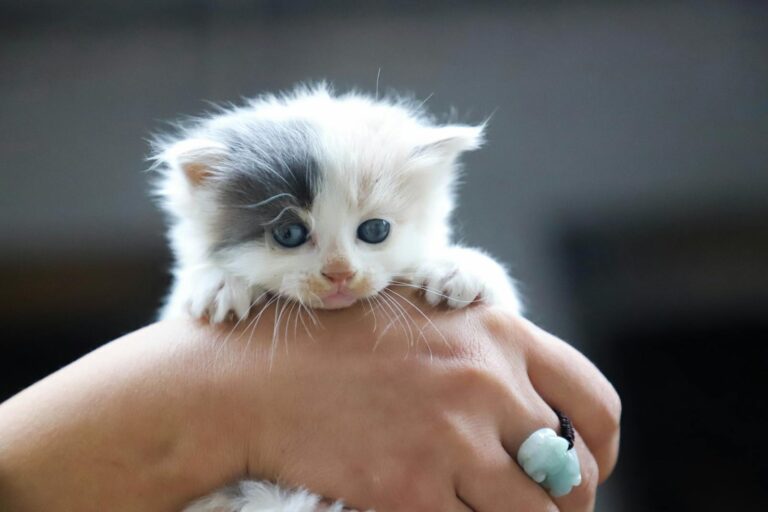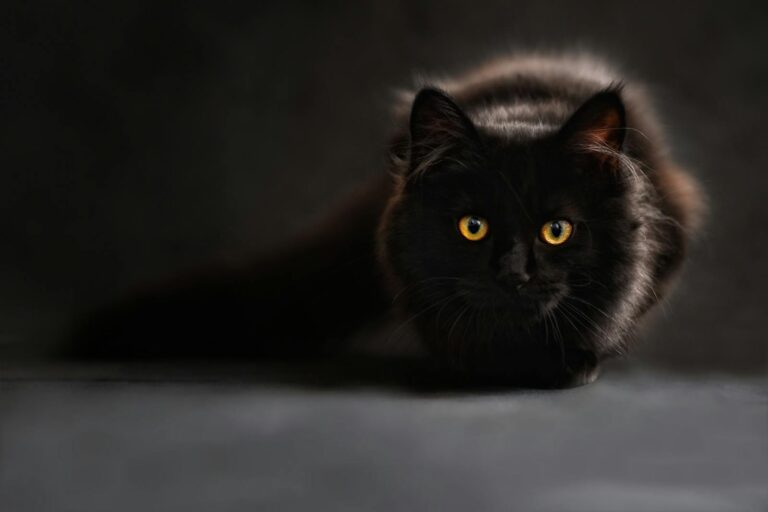Understanding Cat Vaccinations – A Beginner’s Guide to Keeping Your Feline Healthy
Understanding Cat Vaccinations: A Beginner’s Guide is essential for every cat owner who wants to provide the best care for their furry companions. Vaccinations are a critical component of preventive healthcare that can significantly impact your cat’s health and well-being. This guide will explore various aspects of cat vaccinations, helping you make informed decisions for your pet.
Introduction to Cat Vaccinations: Why Are They Important?
Vaccinations are vital in protecting your cat from dangerous infectious diseases. Like humans, cats can be susceptible to various pathogens that can lead to serious health issues or even death. By vaccinating your feline friend, you create a shield against these potential threats, ensuring they live a long, healthy life.
The importance of vaccinations cannot be overstated. They help stimulate the immune system to recognize and fight off specific infections. Without proper immunization, your cat may be at risk of contracting vaccine-preventable diseases such as feline leukemia, rabies, and panleukopenia. In addition to safeguarding your own cat’s health, vaccinations also contribute to community health by preventing outbreaks of contagious diseases within the cat population.
Taking proactive steps to ensure your cat is vaccinated not only promotes its well-being but also alleviates the stress and financial burden associated with treating preventable diseases. With the right information, you can navigate the world of cat vaccinations with confidence and ease.
Benefits of Vaccinations for Cats
Vaccinations provide numerous benefits for your feline friend. Understanding these advantages can help you appreciate their significance in your cat’s healthcare routine.
Disease Prevention
One of the most crucial benefits of vaccinations is disease prevention. Vaccines prepare your cat’s immune system to recognize and combat harmful pathogens effectively. For instance, core vaccinations guard against common and severe diseases like feline distemper, viral rhinotracheitis, and calicivirus.
Community Health
Vaccinating your cat contributes to herd immunity, which helps reduce the overall prevalence of diseases in the community. When more pets are vaccinated, it becomes difficult for diseases to spread, protecting not just your cat but also other animals and humans who may come into contact with them.
Cost-Effective Healthcare
While vaccines do require an initial financial investment, they can save you money in the long run. Treating a vaccine-preventable illness can be significantly more expensive than the cost of routine vaccinations. Investing in your cat’s health through vaccinations can lead to fewer veterinary visits, medications, and treatments in the future.
Peace of Mind
Knowing your cat is protected against serious diseases provides peace of mind for pet owners. Regular vaccinations allow you to enjoy your time with your feline companion without constantly worrying about their health risks.
The Role of Veterinarians in Vaccination
Veterinarians play a critical role in ensuring your cat’s vaccination needs are met. They have the expertise to recommend appropriate vaccines based on your cat’s age, lifestyle, and health status.
Tailored Vaccination Plans
Each cat is unique, and a veterinarian can assess individual factors such as breed, age, and environment to create a tailored vaccination plan. This personalized approach ensures that your furry friend receives the most effective protection.
Monitoring Health Status
During check-ups, veterinarians evaluate your cat’s general health, allowing them to identify any underlying conditions that may affect vaccination efficacy. Keeping your veterinarian informed about your cat’s behavior and any changes in health can also help them provide the best possible care.
Education and Resources
Veterinarians are excellent resources for educating pet owners about the importance of vaccinations. They can answer questions, address concerns, and provide guidance on keeping your cat healthy throughout their life.
Core Cat Vaccinations: What Your Kitten and Adult Cat Need
Core vaccinations are those recommended for all cats due to the widespread nature of the diseases they protect against. These vaccines are considered essential regardless of your cat’s lifestyle or living situation.
Core vaccinations typically include:
- Feline Panleukopenia (FPV)
- Feline Calicivirus (FCV)
- Feline Viral Rhinotracheitis (FVR)
- Rabies
These vaccines form the foundation of your cat’s vaccination regimen, offering vital protection against lethal illnesses.
Feline Panleukopenia (FPV)
Feline Panleukopenia, often referred to as “feline distemper,” is a highly contagious viral infection that primarily affects young kittens but can impact cats of any age. It leads to severe gastrointestinal problems, including vomiting, diarrhea, and dehydration.
Transmission and Symptoms
The FPV virus spreads quickly through direct contact with infected cats or contaminated objects. Symptoms may appear suddenly and can include:
- Severe lethargy
- Loss of appetite
- Vomiting and diarrhea
- Dehydration
If left untreated, feline panleukopenia can be fatal, making vaccination crucial.
Vaccine Administration
The FPV vaccine is usually administered as part of a combination vaccine during kitten vaccinations, starting around six to eight weeks of age. A series of boosters will follow until the kitten reaches around 16 weeks.
Feline Calicivirus (FCV)
Calicivirus is another highly contagious virus that can cause respiratory illness and oral disease in cats. While not always deadly, it can lead to severe complications.
Symptoms and Implications
Common symptoms of FCV include:
- Fever
- Sneezing and nasal congestion
- Oral ulcers
- Swelling of the mouth and tongue
In some cases, the virus can lead to more severe pneumonia or systemic infections.
Importance of Vaccination
Vaccinating against FCV is essential because outbreaks often occur, particularly in environments with multiple cats. The vaccine is usually given alongside FPV and FVR in a combination vaccine.
Feline Viral Rhinotracheitis (FVR)
Feline Viral Rhinotracheitis is caused by the feline herpesvirus and is one of the primary contributors to upper respiratory infections in cats.
Transmission and Symptoms
FVR is transmitted through direct contact with infected cats or objects. Symptoms can include:
- Nasal discharge
- Coughing
- Sneezing
- Eye discharge
While FVR itself is rarely fatal, it can lead to secondary infections that could worsen your cat’s condition.
Vaccination Schedule
Kittens receive the FVR vaccine as part of the combination vaccine series. Adult cats should receive booster shots based on their veterinarian’s recommendations.
Rabies
Rabies is a zoonotic disease, meaning it can be transmitted from animals to humans. It is almost universally fatal once symptoms appear.
Transmission and Prevalence
Rabies is primarily spread through bites from infected animals. Vaccination against rabies is mandatory in many jurisdictions due to its public health implications.
Importance of Vaccination
Ensuring your cat is vaccinated against rabies is critical for both their safety and the safety of others in the community. The rabies vaccination is typically given as a standalone vaccine at around 12 to 16 weeks of age, with boosters required every one to three years depending on local regulations and the type of vaccine used.
Non-Core Cat Vaccinations: Are They Right for Your Cat?
Non-core vaccinations are those recommended based on specific risk factors associated with your cat’s lifestyle. They are not universally necessary but can be important for certain cats.
Non-core vaccines include:
- Feline Leukemia Virus (FeLV)
- Feline Immunodeficiency Virus (FIV)
- Bordetella bronchiseptica
Understanding these vaccines’ purposes can help you determine whether they are right for your cat.
Feline Leukemia Virus (FeLV)
FeLV is a viral infection that can weaken a cat’s immune system and lead to several serious health issues, including cancer.
Risk Factors
FeLV is primarily transmitted through saliva and blood, so cats who spend time outdoors or interact closely with other cats are at higher risk.
Symptoms and Diagnosis
Common symptoms of FeLV include:
- Weight loss
- Poor coat condition
- Frequent infections
- Lethargy
A simple blood test can diagnose this virus, and if your cat is eligible, vaccination may be recommended.
Feline Immunodeficiency Virus (FIV)
FIV is another viral infection that compromises a cat’s immune system. It is often compared to HIV in humans.
Transmission and Symptoms
FIV is mainly spread through bite wounds, making outdoor cats and those involved in fights more susceptible. Symptoms may take years to manifest and can include:
- Persistent fever
- Swollen lymph nodes
- Dental issues
- Poor coat quality
Vaccination Recommendations
Vaccination against FIV is available but not universally recommended. Discuss your cat’s risk factors with your veterinarian to determine if the vaccine is suitable for them.
Bordetella bronchiseptica
This bacterium is a leading cause of kennel cough in dogs, but it can also infect cats, especially those in multi-cat environments.
Symptoms and Transmission
Bordetella can cause respiratory infections characterized by:
- Coughing
- Sneezing
- Nasal discharge
Cats who frequent boarding facilities, shelters, or shows may benefit from the Bordetella vaccine.
Assessing Your Cat’s Needs
When considering non-core vaccinations, it’s essential to look at your cat’s lifestyle and risk factors. Talk to your veterinarian to understand better which vaccines may be beneficial for your kitty.
Vaccination Schedules for Cats: When to Vaccinate and Boost
Establishing a vaccination schedule for your cat is crucial in ensuring they receive timely and appropriate protection against diseases. Kittens and adult cats have different vaccination needs, and understanding these requirements can help you stay organized and proactive about your cat’s health.
Kitten Vaccination Schedule
Kittens require a series of vaccinations to build immunity against common diseases.
Initial Vaccinations
The first round of vaccinations typically begins at around six to eight weeks of age. These initial vaccines often include:
- Feline Panleukopenia (FPV)
- Feline Calicivirus (FCV)
- Feline Viral Rhinotracheitis (FVR)
Follow-up Boosters
Kittens will need follow-up booster shots every three to four weeks until they are approximately 16 weeks old. At this point, they will receive their rabies vaccine, completing their initial vaccination series.
Adult Cat Vaccination Schedule
Once your cat has completed their kitten vaccinations, they will enter adulthood, where vaccination needs change.
Annual Check-Ups
Adult cats should see a veterinarian annually for check-ups, where their vaccination needs will be assessed.
Booster Shots
Adult cats typically receive booster shots for core vaccines every one to three years, depending on the vaccine type and local regulations. Rabies vaccinations must also be updated per state laws.
Factors Influencing Vaccination Schedules
Several factors can influence your cat’s vaccination schedule, including:
- Age and health history
- Lifestyle and risk exposure
- Local laws and regulations
Your veterinarian will be able to provide specific recommendations tailored to your cat’s needs.
Potential Risks and Side Effects of Cat Vaccinations
While vaccinations play a vital role in maintaining your cat’s health, it is essential to understand that they may carry some risks and side effects. Being aware of these potential issues can help you make informed decisions regarding your cat’s vaccination regimen.
Common Side Effects
Most cats tolerate vaccinations quite well, but they may experience mild side effects.
Local Reactions
One of the most common reactions is localized swelling at the injection site. This is usually minor and resolves without intervention.
Systemic Reactions
Some cats might display mild systemic reactions, including:
- Low-grade fever
- Decreased appetite
- Lethargy
These reactions are generally short-lived and resolve within a day or two.
Rare but Serious Reactions
Although rare, some serious reactions can occur after vaccination.
Anaphylaxis
Anaphylactic reactions are severe allergic responses that can occur shortly after vaccination. Symptoms may include difficulty breathing, facial swelling, and hives. If you notice these signs, seek veterinary assistance immediately.
Tumors at Injection Site
In very rare cases, a sarcoma can develop at the injection site, particularly with feline vaccines. Although the risk is low, it’s essential to monitor your cat for any lumps or persistent swelling after vaccination.
Weighing Risks and Benefits
It’s important to weigh the risks of vaccination against the benefits when discussing your cat’s health with your veterinarian. The potential for mild side effects should not outweigh the significant protective benefits of vaccinations.
Frequently Asked Questions About Cat Vaccinations
Many cat owners have questions about vaccinations, their schedules, and their importance. Here are some frequently asked questions to help clarify common concerns.
How often does my cat need vaccinations?
Vaccination frequency varies depending on the type of vaccine and your cat’s age. Kittens require a series of shots every few weeks until they are about 16 weeks old, while adult cats typically need boosters every one to three years.
Can I delay my cat’s vaccinations?
Delaying vaccinations can leave your cat vulnerable to dangerous diseases. It’s essential to stick to the recommended vaccination schedule to ensure optimal protection. Consult your veterinarian before considering postponements.
Are there alternatives to vaccinations?
While some alternative treatments claim to boost immunity, none offer the proven protection provided by vaccines. Relying solely on alternatives may expose your cat to significant health risks.
What should I do if my cat experiences side effects?
If your cat develops side effects after vaccination, monitor them closely. Mild reactions usually resolve independently. However, if you notice severe symptoms such as difficulty breathing or swelling, contact your veterinarian immediately.
How do I know which vaccines my cat needs?
Your veterinarian will consider various factors, including your cat’s age, lifestyle, and health history, to determine which vaccinations are appropriate. Regular check-ups can help ensure your cat remains protected.
Conclusion
Understanding Cat Vaccinations: A Beginner’s Guide provides essential insights into how vaccinations play a significant role in safeguarding your cat’s health. By familiarizing yourself with core and non-core vaccinations along with their schedules, potential risks, and benefits, you can ensure your feline companion enjoys a long, healthy life. Always consult with your veterinarian to tailor a vaccination plan that aligns with your cat’s individual needs and lifestyle, giving you peace of mind as a responsible pet owner.







